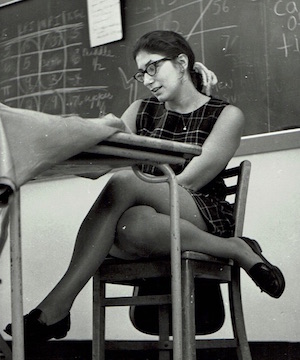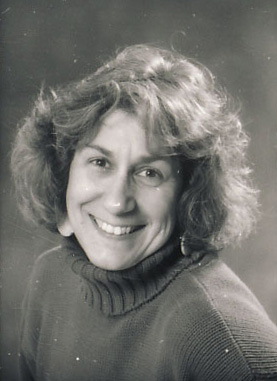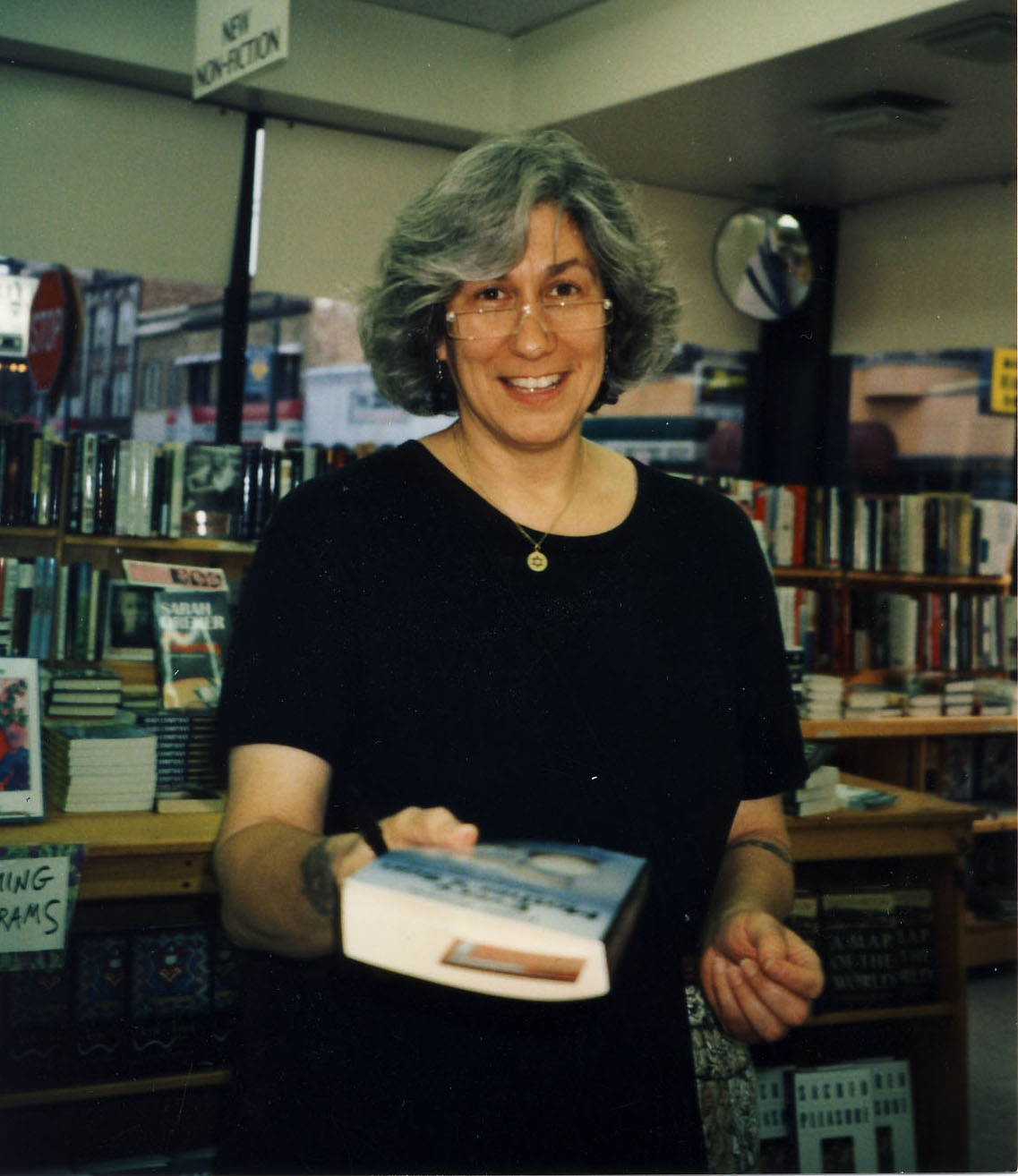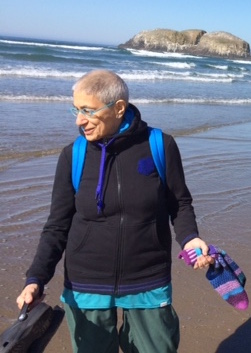TALKING ABOUT JUDITH
Born and raised in the Great Lakes region, living now in the Pacific Northwest, Judith Arcana is a writer of poems, stories, essays and books. Praised by writers and readers, reviewers and community leaders, Judith’s work appears in collections and journals, online and on paper. Links to and information about her published work are on the WRITING page.
Judith Arcana is a Jane, a member of the Chicago underground service that helped thousands of women and girls get safe illegal abortions before the US Supreme Court ruled on Roe v. Wade in January of 1973.
She's a skilled performer/presenter who has worked with audiences in the US, Britain and Canada, often visiting campus and community groups to talk about reproductive justice and perform her powerful writing. Judith appears in some documentary films, including the 1995 Jane: An Abortion Service (dir. Kate Kirtz/Nell Lundy), the 2014 She's Beautiful When She's Angry (dir. Mary Dore), the 2019 OUR BODIES OUR DOCTORS (dir. Jan Haaken), and 2022’s THE JANES, created by the producer/director team Daniel Arcana, Emma Pildes and Tia Lessin.
A longtime teacher of literature, writing and women’s studies, Judith has a PhD in Literature, an MA in Women's Studies, an Urban Preceptorship in Preventive Medicine and a BA in English. She’s taught in high schools, colleges, libraries, living rooms, a state prison and a county jail.
Her first and last teaching jobs were for students at Niles Township High School in Illinois, in the original, beautiful old building that was her own alma mater — and the doctoral program of the Union Graduate School, an experimental “university-without-walls” that held colloquia, seminars and meetings all over the USA. For Niles, Judith taught English, Creative Writing and Humanities, the latter as part of a team of students and teachers. For UGS, where she served as a dean, Judith advised doctoral candidates, led residential seminars, and was founding director of the Union’s Center for Women in Washington DC.
Her writing has been supported by the Puffin Foundation, Rockefeller Archive Center, Institute for Anarchist Studies, NW Oregon's Regional Arts and Culture Council, Celebration Foundation, Union's doctoral faculty, Barbara Deming Memorial Fund, and Oregon Literary Arts – and fostered by residencies at Soapstone and MilePost5 in Oregon, the Montana Artists Refuge, Ragdale in Illinois, the Mesa Refuge in California and the Helene Wurlitzer Foundation in New Mexico.
Judith’s poems, stories and essays have been published widely for more than fifty years, on paper and online in literary journals; political, cultural and medical magazines; newspapers; academic journals; anthologies; and textbooks. Her fiction and poetry have won chapbook awards from Minerva Rising Press and Turtle Island Quarterly. See the WRITING page for more information, excerpts of her work, and links to all of her books.
She began to study the Tarot in 1970, the same year she got fired from her tenured teaching job, joined Chicago’s underground abortion service, and drove from the Great Lakes to the Pacific coast and back, making a political/philosophical road trip — a quest with many stops, occasional passengers, and a probably-obligatory flat tire in the desert. 1970 was a watershed year in Judith's life.
JUDITH TALKING
In the early nineteen-seventies, I had two experiences that turned me into a public person, put me out in front of an audience. I’d not been looking for or anticipating that change, though you could say (and I would, now) that teaching is public speaking; teaching requires a certain amount of performance for an audience - and I’d already done that for six years. Audre Lorde said teaching is front-line work; I learned that the hard way.
In 1970 I was fired from my teaching job (despite tenure), accused of unorthodox methods and attitudes. The school board fired two other teachers and me, pushing us into a startlingly bright spotlight for nearly eight months. Then, in 1972, I was one of seven Janes arrested by the Chicago police; that experience pushed me again (and further) into the public sphere, and ratcheted up the level of my sociopolitical education considerably.
Those experiences were part of a great wave. Teachers were being fired all over the USA, accused of various kinds of disrespect for tradition and law. Many thousands of people were taking street-level action to protest and counteract the effects of bad law and bad policy. A notable percentage of that action was for reproductive justice and women’s rights; these things were front-page news. Everyone was learning from the courage and intelligence of the civil rights movement, which had likewise fostered the anti-war movement.
By the middle of the nineteen-seventies, no longer a high school teacher, I was talking and teaching about women’s health and sexuality, pregnancy, childbirth and nursing, abortion, adoption and other motherhood themes. I had chosen to become a mother, and had begun to work on my first book; I was teaching women’s studies at local colleges (women all over the country were doing the research, inventing curriculum as fast as we could) - and teaching writing workshops.
Writing (doing it and teaching about it) was moving into the center of my life. My first two books came out in 1979 and 1983. Though I was in graduate school from 1984 to 1989, I did manage to publish some poems and stories. Being a writer included performance; I began years of reading and talking in bookstores, libraries, college lecture halls, living rooms, cafes, galleries, streets and parks - and an organic farm! I write; then I publish and perform what I write. I work in the theater of writing, wanting my words to rise from page and screen with the energy of spoken language. Over the years, I’ve worked within the relationships between art and action, poetry and politics.
I’m a woman who began to be conscious at the end of the sixties in the USA, and began to grow into myself in the seventies. Before that time, though I was intelligent and competent, I didn’t really know who I was – or what the world was. More important, I had no idea I didn’t know those things. Luckily, I was educated by powerful social movements created by people struggling for liberation and justice. Like Oliver Wendell Holmes (yes, really), I can say: Through great good fortune, in youth my heart was touched with fire.









